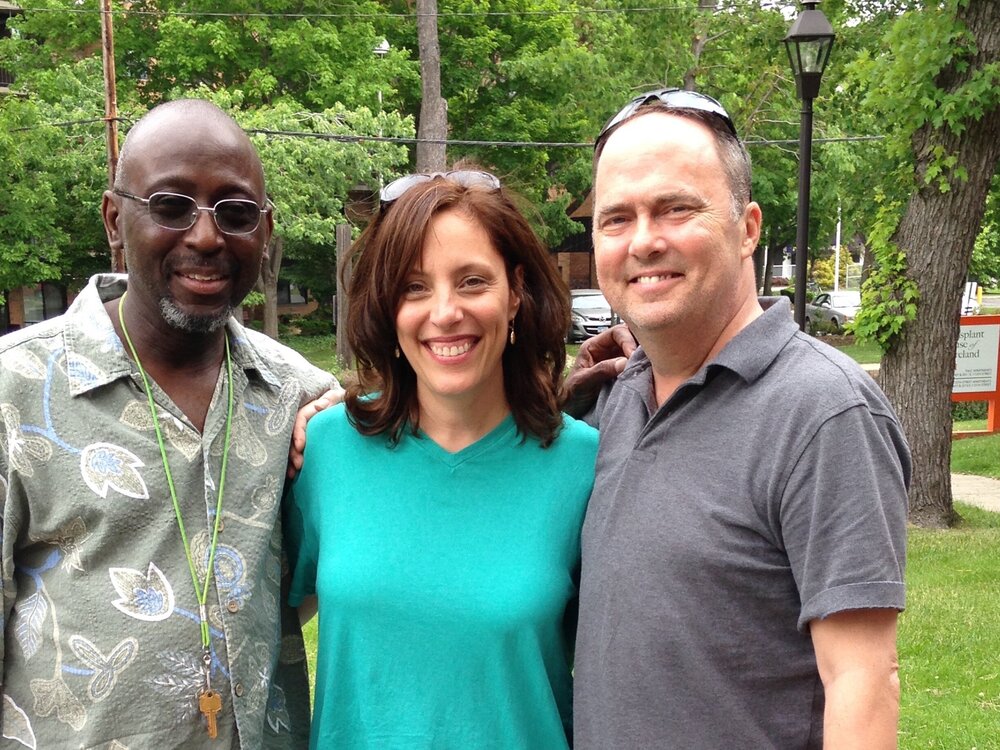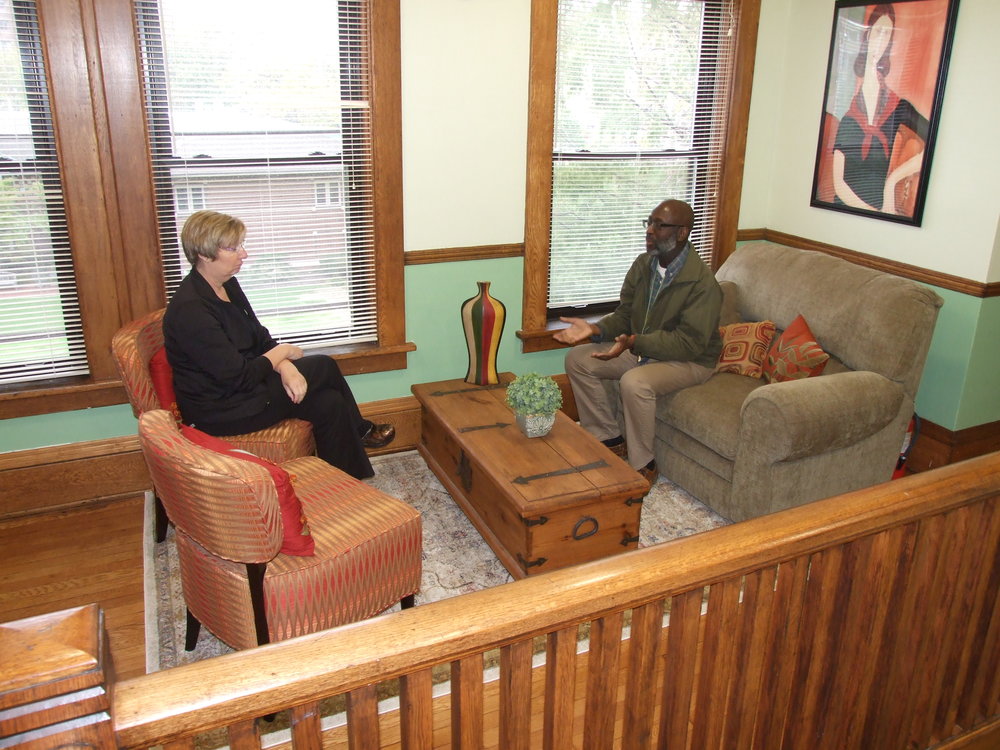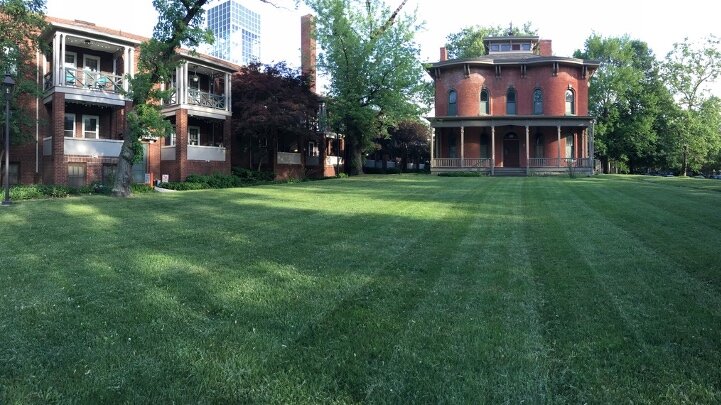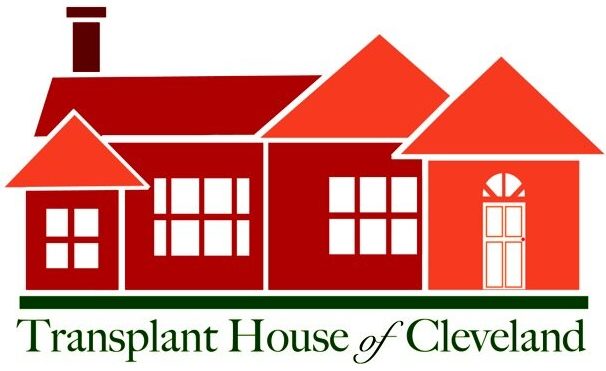Mission
Transplant House of Cleveland provides affordable, temporary housing and a welcoming, supportive community to organ transplant patients and their families.
Vision
We envision a world in which every transplant patient and caregiver is accompanied on the transplant journey and has the community, connections, and resources they need.
The Need
Only 4% of U.S. medical centers have organ transplant programs. Therefore, most who require a transplant as treatment for end-stage organ disease will have to travel away from home to receive that care.
The effect of this kind of travel on families is profoundly complicated, both emotionally and logistically, and financially burdensome. The length of time away from home (and family, work, care of a house, and all familiar forms of support) can range from 10 days to 9 months, very commonly. For some, the time away from home can be a year or longer.
Where would you turn under these circumstances, to navigate all of this? What first steps would you take to find lodging? Hotels are adequate for business travel and vacations, but can feel very sterile, lonely, and confining when travel is done under significant stress. Hotels are often financially impossible for a family to bear after a few nights.

Transplant is an emotional roller coaster; no one should be on that roller coaster alone.
Dr. Charles Miller, Enterprise Director of Cleveland Clinic Transplantation

Fewer than 40,000 people receive organ transplants in all of the United States each year. More than 100,000 are waiting annually. Therefore, those who do receive that gift of life are in a small minority of the population and may not know anyone else who lives a similar story.
Organ transplantation is one medical procedure for which the presence and ready availability of a caregiver is mandatory at all phases. In other words, a patient will not be considered for transplant if he or she cannot demonstrate that there is one person or several people fully competent to act as support from the time of the initial medical evaluation, through post-transplant care. This is due to the severity of underlying illness, the complex pharmacological management post-transplant, and the delicate balance that a patient must always manage to avoid infection and organ rejection.
Waiting for and living with a transplant puts patients at higher risk for depression and anxiety.
Post-transplant, patients feel the great burden of managing the lifelong medical treatments that keep a precious organ healthy. Too many patients fail to adhere to the routine and the expectations long-term and suffer medically as a consequence.
Even though my husband and I live very near the Cleveland Clinic, I couldn’t have felt more alone and isolated as I did before, during and after his liver transplant. I needed the community of Transplant House of Cleveland.
Lisa Vegas, Wife of Liver Recipient Matthew Miller
Research shows that patients who are surrounded by support from others have better medical and psychosocial outcomes.
Patients who are sick enough to be considered for an organ transplant are typically facing the ends of their lives. They are waiting on a sophisticated surgery that may never come, due to the shortage of organs, compared to the need.
Waiting has no guaranteed boundaries- not in length of time or amount of emotional toll.
Knowing that most transplants happen only when someone else dies is just one part of a complex reality with which families grapple.
Learning that transplant is not a “cure” but more accurately, a treatment that has to be managed for a lifetime, is another part of the sobering reality.
When that transplant comes, there is great rejoicing and awe.
And then there is the sudden remembering of a donor family, grieving. Many patients feel a survivor guilt as they rebuild their lives with passion and good fortune.
The path through this new way of life is best forged together. There is great relief in finding another who feels what you feel, knows what you know, and can help you cope and live fully- whether you are the patient or the caregiver. Having the ready-availability of professionals who understand this medical journey and can educate and advise along the way makes this easier, yes, but also more successful.

Transplant House of Cleveland exists to fill these needs and provide the healing power of community
The Future
In order to realize the Transplant House of Cleveland Vision:
-
We must have sufficient (increased) physical space
-
That space should be accessible and provide the physical comforts that patients need
-
Our team of holistic health providers must increase, preferably giving services on a volunteer basis and at no cost to patients and caregivers (ie: meditation, massage, yoga, counseling, exercise instruction, nutrition coaching, financial advising)
-
Our Family Assistance Fund must be large enough to ensure that every family that needs financial assistance for the transplant journey receives it, and has the full range of support services, regardless of ability to pay
Next Steps
Identify a Campus that will Serve us for the Long-Term
Transplant House of Cleveland has explored the expansion of its housing and programmatic space through renovation of the historic Cozad-Bates House, which is the focal point of the current campus.
Estimated Capital Needed: $2.4 million
Recent unexpected developments indicate that some of the other buildings on this campus will not be available for the long-term, calling into question the usefulness of this location. The Transplant House Board is currently evaluating other potential opportunities to house all of our work in one location.
Improve current buildings
If we remain on this campus, we must make physical improvements to the 16-unit apartment building (our “Building 1”), adding air conditioning, air filtration, stair lifts, new cabinetry and new furnishings.
Estimated Capital Needed: $500,000
Increase the Bowen Family Assistance Fund
Every cash contribution to this fund is used to defray the cost of housing for families who are with us for extended stays. The annual need for extra subsidization of housing (beyond the already reduced costs of $50-60 per night) is $25,000-30,000, and is growing, due to the impact of COVID-19 on the financial lives of patients and caregivers. All contributions to the fund are fully tax-deductible.

I am often moved, emotionally and spiritually, when I witness the truth that once-total strangers who come together around a common concern or fear, bond genuinely and without judgement, and become “lifesavers” to each other. This happens without knowing or caring anything about the others’ politics, socio-economic status, ethnic background, or other such identifier. This is humanity at its finest. My hope is that the radical welcome and acceptance and compassion found here are taken home by each of our guests, and perpetuated.
